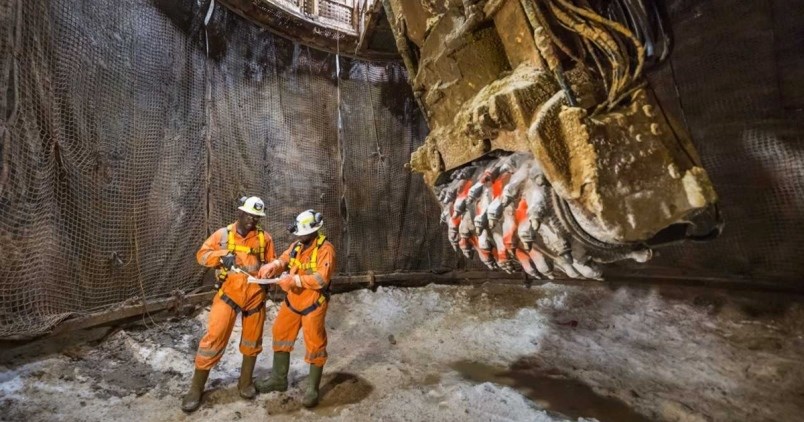JANSEN — In a presentation to investors, BHP said potash as a commodity is still attractive to them, but made no indication about what their final decision on the proposed Jansen project would be.
“At BHP we are very deliberate about the commodities we choose,” Huw McKay, BHP’s chief economist, told investors June 17. “We are especially deliberate about those commodities where we choose to grow. Those commodities which are clearly future facing, are the natural place to seek growth in today’s environment.”
The presentation said that demand for potash is expected to grow due to the growing global population and the need for fertilizer. While some potash production is being voluntarily curtailed now, the total potential production by the world’s current mines is expected to be needed to meet demand by the late 2020s. Some potash mines are expected to be depleted in the 2030s, 2040s and 2050s, requiring new mines to replace them. Among the three major fertilizer chemicals, potash has fewer negative environmental impacts than nitrogen and phosphorus – important for a world where decarbonization is a major focus.
“One thing I do want to underscore though is that our decision on Jansen depends on more than just the fundamentals of potash,” BHP President Minerals Americas Rag Udd said in a question and answer session after the presentation. “We are still working through some of the final steps to get to a decision.”
Those steps include securing a port; finishing off the final shaft liner, which is 91 per cent complete; and considering the final project risk and return metrics.
BHP said stage one of the Jansen project is expected to be presented to the company’s board of directors for a final investment decision in the coming months. Stage one would require an estimated US$5.3 billion to US$5.7 billion to complete.
Udd said the Jansen project does have some advantages.
The first is the positive potash market outlook.
The second is that Jansen is a high-quality potash deposit located in a stable mining jurisdiction.
“We see Jansen as large, long-life, upstream, high-margin and expandable, and we see this has the potential to be a really great resource,” Udd said.
The final advantage is the new technology BHP can bring online to increase productivity and reduce costs.
“With Jansen, you can expect that we would apply the latest technologies, be that 3-D seismic, advanced materials handling capability, or automation,” Udd said. “We would also bring basically the BHP culture of safety, simplicity, and operational excellence. That includes our approach to cultural heritage, water stewardship, and emissions.”
However, Jansen does have to compete against other potential BHP projects. The risk, time horizons and life cycle returns will be considerations that will be examined.
“Now, openly I've said a few times to individuals that we're not happy with the amount of capital we've already sunk and if we were to do our time again we would have gone about doing things quite differently,” Udd said.
“But we are where we are, and our decision needs to be about how best to apply the next shareholder dollar. All investments need to compete for capital against the other options in our portfolio and against cash returns to shareholders.”




